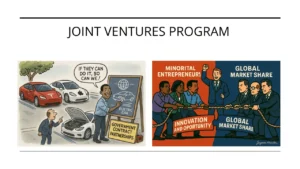
From Capital Raise to Scalable Growth: Why Fractional CFOs & AI Solutions Matter
“Imagine receiving the call you’ve been anticipating for over 8 years, the investor not only going to invest in your business but also give you


“Imagine receiving the call you’ve been anticipating for over 8 years, the investor not only going to invest in your business but also give you

In his provocative work Outwitting the Devil, Napoleon Hill reveals one of the most insidious forces that keeps individuals from achieving success: the Master of

The Power Play Before the Payday You’ve got traction. Now you’ve got pressure. The capital is there, but the clarity is not. You’re scaling fast,

“Whether you think you can or you think you can’t. You are right!” — Napoleon Hill This quote by Napoleon Hill is a powerful reminder

In an America that once prided itself on being the land of opportunity, the economic landscape now presents a tale of two cities—one thriving and

